Fishers-based Eleven Fifty coding academy partners with Vincennes University
Vincennes University announced its partnership Thursday with Fishers-based Eleven Fifty Academy to develop new talent in the cybersecurity field.
Vincennes University announced its partnership Thursday with Fishers-based Eleven Fifty Academy to develop new talent in the cybersecurity field.

After 15 years working in the information technology department for the state of Indiana—the last four as chief information officer, Dewand Neely is departing to take a job as chief operating officer for Eleven Fifty Academy, the not-for-profit coding academy with facilities in downtown Indianapolis and Fishers.
The focus will be on Facebook’s plan to create a digital currency and its role in housing. The company agreed in a legal settlement in March to overhaul its ad-targeting systems to prevent discrimination in housing, credit and employment ads.
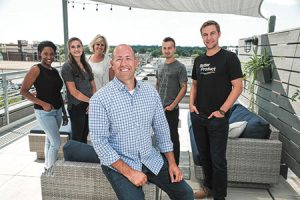
In the last 18 months, more than a half-dozen tech companies have opened up shop in the village or decided to do so.
Three data science experts spoke with IBJ about the benefits—and difficulties—associated with the practical use of artificial intelligence.
The rapid rise of artificial intelligence in recent years has been simultaneously stunning, promising—and a bit scary.

The Indiana IoT Lab in Fishers has fast become an oasis for tech firms big and small, as well as freelancers helping companies turn their ideas about internet-connected devices into products.
The buzzword in mobile is 5G—the newest generation of wireless service that promises more speed and better connectivity for smartphones, internet-connected devices and even autonomous cars.
Allegient, now known as the Digital Transformation Solutions division for DMI, is still growing—and that growth could actually accelerate.

Who attends coding boot camps? It might surprise you.
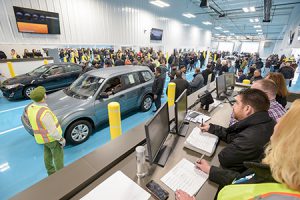
The used-car auction business might sound like a low-tech industry, and one destined to stay that way. But KAR’s executives think otherwise.
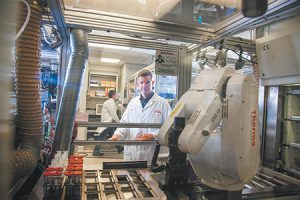
A growing number of Indiana corporations are formalizing in-house innovation, an effort aimed at remaining technologically relevant in a fast-changing business landscape.

Some of Indiana’s most acclaimed technology and entrepreneurial events are joining forces for a multi-day June conference, an effort aimed at boosting venture capital in a state that struggles to draw it.

Dewand Neely recently spoke with IBJ about cybersecurity, the innovation his office is driving, and being one of only a few African-American state government CIOs in the country.

Some in Central Indiana’s emerging IoT hardware and software cluster are endeavoring to develop standards and best practices for the fledgling sector.

A few not-for-profits and at least one university have rolled out coding programs they hope will alter some of the somber statistics on the lack of diverse populations in technology careers.

It’s immensely difficult for tech firms to quickly build and sell technology software or hardware without a sizable venture war chest. Nevertheless, at least a few central Indiana firms have managed to grow at a healthy pace without trading equity stakes for cash.
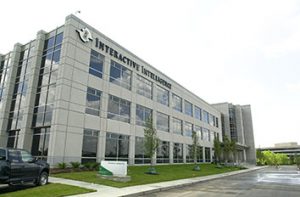
Interactive Intelligence CEO Don Brown invested three years ago in a startup formed by an exiting employee. Last year, Interactive bought that startup–OrgSpan–and the move is starting to pay off.
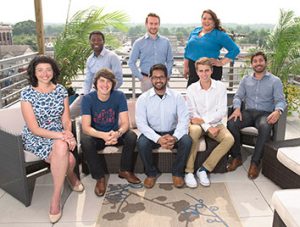
All have led some of the most promising companies and organizations in the city’s burgeoning tech space for at least three years—bootstrapping and collectively raising more than $12 million in venture capital and employing about 150 people along the way.

Anthem Inc. spends $50 million a year and employs 200 people to keep its information technology secure. Yet the Indianapolis-based health insurance giant still left itself vulnerable to hackers on key fronts leading up to the theft of 80 million consumer records.